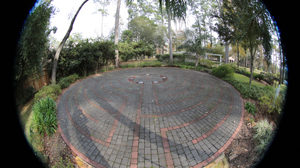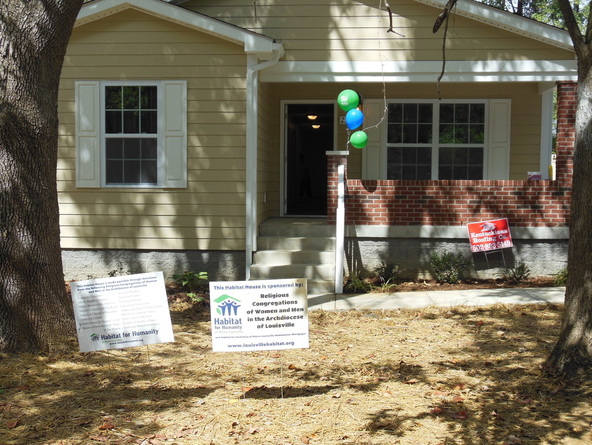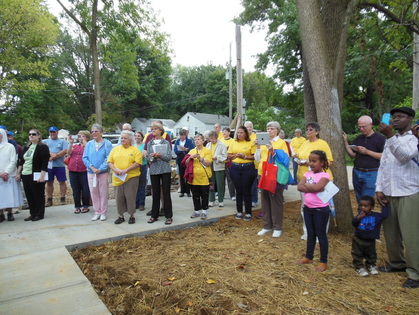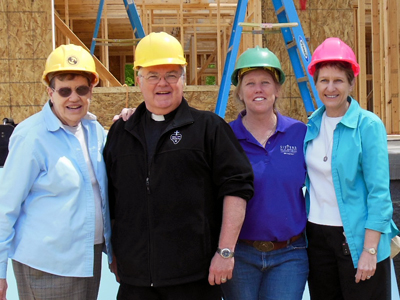“God’s Footprints to Calvary”
Stations of the Cross at Mater Dolorosa Retreat Center ~ Adapted from Fr. Claudio Piccinini, CP
The Passionists welcome you to join in Devotion of the Stations of the Cross.
Stations of the Cross at Mater Dolorosa Retreat Center ~ Adapted from Fr. Claudio Piccinini, CP
The Passionists welcome you to join in Devotion of the Stations of the Cross.
Weekend Retreats
Collection of photos which allow a glimpse of the weekend retreat experience at Mater Dolorosa Passionist Retreat Center, the beauty of the grounds and the peace that awaits all who visit.
Planned Gifts to Mater Dolorosa will ensure that our retreat center can continue well into the future …
 Mater Dolorosa
Mater Dolorosa
Passionist Retreat Center
700 N. Sunnyside Avenue
Sierra Madre, CA 91024 [directions]
626 355 7188 Phone
626 355 0485 Fax
[email protected]
 Mater Dolorosa Passionist Retreat Center
Mater Dolorosa Passionist Retreat Center
Sponsorship Circle
“We welcome all who wish to hear the message of the Passion, through our traditions of preaching, hospitality, and compassion.”
St. Paul of the Cross, the Founder of the Passionist Congregation, invited people to share his life, devotion, and spirituality of Christ crucified in order to better understand the immense love God has for us.
Mater Dolorosa has followed in the footsteps of St. Paul of the Cross since the first retreat in 1926 held under the shade of the majestic Moreton Bay Fig tree. The Passionists have welcomed all who wish to attend a Passionist-preached weekend retreat regardless of their ability to pay the requested donation.
This long-held tradition has been made possible by the generosity of retreatants and friends who are able to donate more than the requested donation and through fundraising efforts.
Scroll down to join the Mater Dolorosa Sponsorship Circle.
What Is The Sponsorship Circle?
The Sponsorship Circle is an annual donors’ club whose members, through their generosity, join with the Passionist Community in promoting and furthering the retreat ministry and the mission of Mater Dolorosa.
Who Are The Members?
Sponsorship Circle members are individuals or married couples who are retreatants or friends of Mater Dolorosa that desire to share in the retreat ministry by making an on-going financial commitment to this important work. Membership is for one year and coincides with the retreat center fiscal year of July 1 through June 30.
How Are The Proceeds Used?
Donations to the Sponsorship Circle are primarily used for the following reasons:
A formal Sponsorship Circle was established for the following reasons as well:
When Was the Sponsorship Circle Established?
The Sponsorship Circle was established in 2013 as a formal giving program. However, throughout the years Mater Dolorosa has been blessed by the generosity of retreatants and friends who have contributed to our long-standing tradition of welcoming all who wish to attend a weekend retreat regardless of their ability to pay the recommended donation.
What Are the Benefits Of Membership?
The most important benefit of membership is the knowledge that your contribution is being used to further the retreat ministry and mission of Mater Dolorosa.
What Are The Obligations Of Membership?
Members of the Sponsorship Circle agree to donate $100 or more a year in addition to their retreat weekend donation and to remember the Passionist retreat work in prayer.
What Are The Sponsorship Circle Levels Of Giving?
There are six levels of giving in the Sponsorship Circle:
Are Sponsorship Circle Donations Tax Deductible?
Yes, all donations to the Sponsorship Circle are tax deductible as charitable contributions.
Can Sponsorship Circle Donations Be Made In Payments?
Yes, Sponsorship Circle donations can be spread throughout the year at your convenience. Acceptable payments are MasterCard, Visa, Cash or Check and can be made by calling the retreat center, via mail or through our secure website. We do not send reminders, but we will keep accurate records of your payments. Membership is for one year and coincides with the retreat center fiscal year of July 1 through June 30.
How Can I Join The Sponsorship Circle?
Membership in the Sponsorship Circle is available to anyone interested in the Passionist retreat ministry and mission at Mater Dolorosa. We have three convenient ways for you to join: online, by phone or mail:
Retreat Theme 2015-2016
Mercy: A Glimpse into the Heart of God
In keeping with this Extraordinary Jubilee of Mercy, we are invited to gaze upon Jesus Christ, the face of the Father’s Mercy. With the help of Scripture, Pope Francis and St. Paul of Cross, we will begin to unveil God’s free gift of mercy to understand what it means to “Be merciful just as your Father is merciful.” Luke 6:36
To enrich your retreat experience we suggest the following sources:
Pope Francis’ BULL OF INDICTION to the JUBILEE OF MERCY
Church of Mercy – a collection of homilies by Pope Francis
In addition, this year we will be praying the Liturgy of the Hours which is prayer of the universal church and has been used for centuries. To gain a further understanding of this tradition of prayer, you are invited to read: The Everyday Catholic’s Guide to the Liturgy of the Hours by Daria Sockey
Download and print our Catholic Retreat Registration Form and send via US Post, fax or in person (we’d love to see you!).
 In addition to hosting a variety of Catholic retreat programs, Holy Name continues its thirty year tradition of supporting Twelve Step Recovery Programs for people in Southeast Texas.
In addition to hosting a variety of Catholic retreat programs, Holy Name continues its thirty year tradition of supporting Twelve Step Recovery Programs for people in Southeast Texas.
Visit our registration page to see what’s available and to register online. Or you can download and print our 12 Step Retreat Registration Form and send it via US Post, fax or in person (we’d love to see you!) 12 Step Meeting days and times are listed at the bottom of this page.
Sunday
6:00-7:00 p.m. A.A. Men (2 groups)
7:30-8:30 p.m. Al-Anon/A.C.A.
Monday
9:15-10:15 a.m. Al-Anon (Literature discussion)
6:30-7:30 p.m. A.A. Men and Women (Step Meeting)
Tuesday
9:15-10:15 a.m. Al-Anon (Discussion)
12:00-1:00 p.m. Overeaters Anonymous
H.O.W.
6:30 -7:30 Gamblers Anonymous
8:30-9:30 p.m. A.A.
Wednesday
10:00-11:00 a.m. Al-Anon (Step Meeting and New Comers)
11:00 p.m.-12:00 p.m. Al-Anon (Discussion)
6:30-7:30 p.m. A.A. Men
8:00-9:00 p.m. A.A. & Al-Anon (Women only)
Thursday
9:30-10:30 a.m. Al-Anon (Discussion)
12:00-1:00 p.m. Overeaters Anonymous
H.O.W.
5:30-6:30 p.m. Gamblers Anonymous (Spanish Speaking)
7:00-8:00 p.m. C.O.S.A. Women
8:30-9:30 p.m. Al-Anon Men
Friday
12:15-1:30 p.m. Al-Anon (With New-Comers)
Habitat for Humanity, Louisville, Kentucky
Louisville Dedicates its “Wake Up the World House”
After nearly four months of labor by members of 24 religious communities in the Archdiocese of Louisville, partnering with Habitat for Humanity, the building of a “Wake Up the World” house is complete. A mother and her eight children were “all smiles and gleeful in their gratitude” as the dedication of their new house took place on Saturday, September 12, 2015. Read more on the CMSM Website.


Older News
Habitat for Humanity, Louisville, Kentucky
Members of 24 different religious communities in the Archdiocese of Louisville are collaborating on a “very significant service project” in celebration of the Year of Consecrated Life. Over the coming months, the religious communities and their “families” will help build a house, named the Pope Francis House, in Louisville with Habitat for Humanity — some by finances, some by “sweat”, some by providing meals and many by their prayer. Read more about this ambitious project on the Year of Consecrated Life website.


